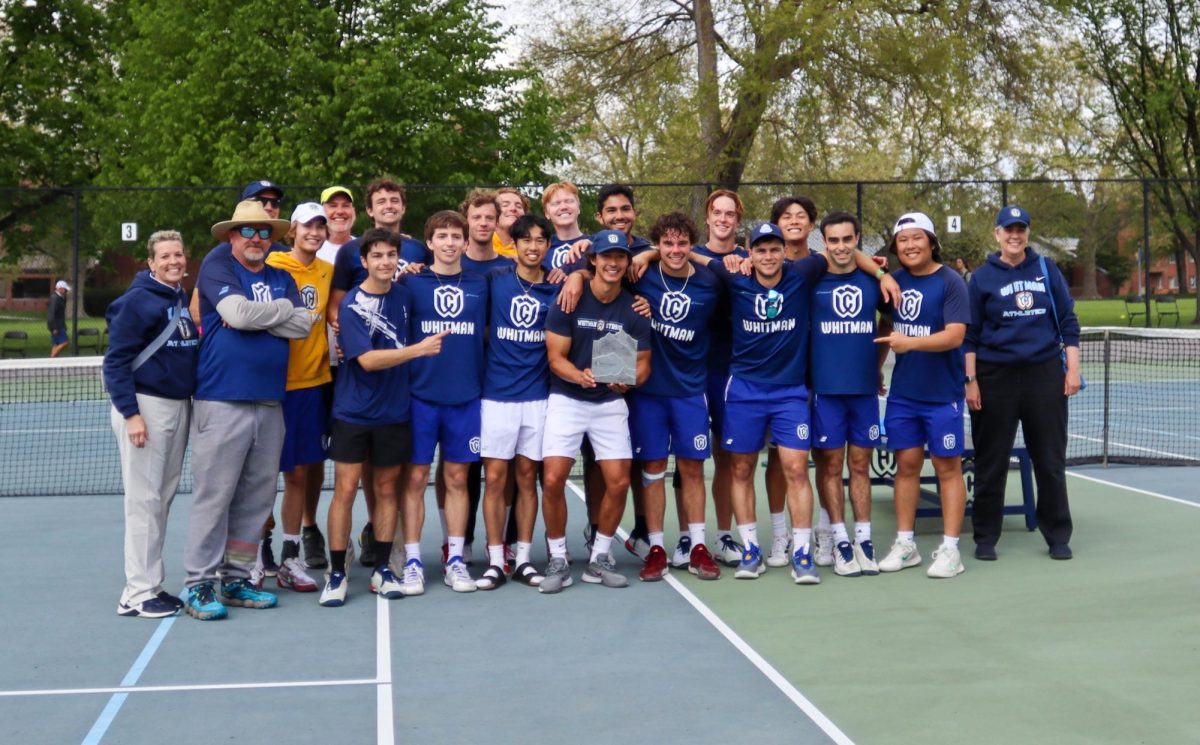
How many classes could you afford to miss? Could you maintain your GPA if you were traveling every weekend? Could you do this while competing at the Division I level against world-class athletes?
Whitman’s Alpine ski team misses the most school of all the college’s varsity sports. Each season, they participate in five races which take them to places like Alaska, Colorado, California and New Mexico. Their travel schedule can necessitate missing up to three days of school in a week.
Students are allowed to miss 20 percent of their classes, as long as they are excused absences. Whitman faculty try to ensure students miss as few classes as possible.
“All the [athletic] schedules are approved a semester ahead by the college athletic committee, and then from there it goes to the faculty board of review,” said Athletic Director Dean Snider. “If there are any questions from the board, we look at those questions, and we adjust schedules as necessary.”
Student-athletes have to be proactive in managing their academics while competing, but professors do their best to accommodate them.
“The professors are all really helpful; you just talk to them ahead of time. Some of them give you work beforehand, others will just figure it out when we get back,” said sophomore Liza Allen.
Many skiers have experience completing academic work while missing school.
“We’ve all through high school missed a lot of school for skiing,” said Allen. “It’s nothing new.”
Luckily, this year the team had already raced three times before school started, which made handling academics easier.
“Last year, we ended up flying three times because there was no racing early on,” said coach Tom Olsen. “It was a real struggle, especially for some of the freshmen.”
Alpine skiers’ schedules aren’t only busy when they’re traveling for races. Their training schedules are also time-intensive. In the fall, the team does dry-land training five days a week. During ski season, they go up to Bluewood three days a week, leaving Whitman at noon and leaving the mountain when it closes. On the weekends they go up to the mountain in the morning and ski until noon.
“It’s pretty time consuming,” said sophomore Tim Bak. “We don’t have a whole lot of time to do anything else [besides skiing].”
While non-scholastic activities like work, clubs, and other sports may fall by the wayside, getting an academic schedule to match up with the training schedule can be a problem as well. Some skiers, like Allen, are precluded from weekday practices due to afternoon classes.
“Unfortunately, my classes are required for my major, so there’s nothing I can do about it,” said Allen.
Despite the time away from campus, alpine skiers and Whitman athletes in general keep their grades up.
“In the NCAA, student-athletes actually have slightly higher GPAs when they’re in season than they do when they’re out of season,” said Snider. “What you find at Whitman is that the student-athletes’ GPA is statistically insignificant from the rest of the student body.”
Whitman doesn’t provide scholastic resources specifically for athletes, unlike some other Division III schools, so student-athletes need to work hard both athletically and academically.
“[Our students] have a mindset that they’re going to succeed in academics, and that’s why they’re here,” said Snider.


